The Importance of Understanding Makeup Expiration Dates
Related Articles: The Importance of Understanding Makeup Expiration Dates
Introduction
With great pleasure, we will explore the intriguing topic related to The Importance of Understanding Makeup Expiration Dates. Let’s weave interesting information and offer fresh perspectives to the readers.
Table of Content
The Importance of Understanding Makeup Expiration Dates

The beauty industry offers an ever-expanding array of products, each promising to enhance our appearance and boost our confidence. While the allure of these products is undeniable, it’s equally crucial to understand their shelf life. Makeup, like any other consumable product, has a finite lifespan, and using expired products can pose significant risks to our health and skin.
Understanding the Concept of Makeup Expiration
Makeup expiration refers to the period after which a product’s effectiveness and safety may decline. This decline is influenced by several factors, including:
- Ingredients: The inherent chemical composition of a product dictates its stability and susceptibility to degradation over time.
- Packaging: The type of container, its seal, and the presence of air or light exposure all affect product longevity.
- Storage Conditions: Improper storage, such as exposure to extreme temperatures or humidity, can accelerate product degradation.
Why Expiration Dates Matter
While the allure of a favorite lipstick or eyeshadow palette might tempt us to use them well beyond their recommended lifespan, doing so can have several detrimental consequences:
- Loss of Effectiveness: As products age, their active ingredients may break down, rendering them less effective. This can result in faded colors, reduced coverage, and diminished performance.
- Bacterial Growth: The moist environment inside makeup containers can be a breeding ground for bacteria, especially when products are shared or exposed to air. This can lead to skin infections, irritation, and allergic reactions.
- Chemical Changes: Over time, ingredients can oxidize or react with each other, leading to changes in texture, color, and scent. These changes can also result in product instability and potential skin irritation.
- Safety Concerns: Expired products may contain harmful byproducts or altered ingredients that can cause adverse reactions, including skin rashes, breakouts, and even eye infections.
Decoding Expiration Dates
Makeup products typically do not carry explicit expiration dates like food products. However, there are several indicators and guidelines to help consumers determine product lifespan:
- PAO (Period After Opening) Symbol: Look for a small open jar icon with a number followed by an ‘M’ on the product’s packaging. This indicates the number of months the product remains safe and effective after opening.
- Manufacturer’s Guidelines: Many brands provide detailed information on their websites or product packaging regarding recommended shelf life.
- Visual and Olfactory Clues: Pay attention to changes in color, texture, scent, or consistency. If you notice any significant alterations, it’s a sign that the product may be nearing its expiration.
Common Makeup Expiration Timeframes
While these timeframes are general guidelines, it’s crucial to consult specific product instructions for accurate information:
- Mascara: 3 months
- Eyeliner: 3-6 months
- Lipstick/Lip Gloss: 1 year
- Foundation: 1 year
- Powder Products: 2 years
- Eyeshadow: 2 years
- Blush: 2 years
- Bronzer: 2 years
- Highlighter: 2 years
FAQs Regarding Makeup Expiration
Q: What happens to makeup after it expires?
A: Expired makeup can experience several changes, including:
- Loss of Effectiveness: The active ingredients may break down, reducing their efficacy.
- Bacterial Growth: Bacteria can thrive in the moist environment of makeup containers, potentially leading to skin infections.
- Chemical Alterations: Ingredients can oxidize or react, altering texture, color, and scent.
Q: Is it safe to use expired makeup if it still looks and smells normal?
A: While expired makeup might appear visually and olfactory unchanged, it may still contain harmful bacteria or altered ingredients that could cause skin irritation or infections. It’s best to err on the side of caution and discard expired products.
Q: Can I use expired makeup on my eyes?
A: It’s highly discouraged to use expired eye makeup, especially mascara and eyeliner, as these products are more prone to bacterial contamination, which can lead to serious eye infections.
Q: Is it better to throw away makeup after a certain time even if it looks fine?
A: While it’s tempting to keep products that still appear good, it’s generally recommended to follow the PAO guidelines and discard products after the specified time to ensure safety and effectiveness.
Q: How can I extend the shelf life of my makeup?
A: While you cannot indefinitely extend the shelf life of your makeup, these practices can help prolong its usability:
- Store in a cool, dry place: Avoid storing makeup in bathrooms, as humidity and temperature fluctuations can accelerate degradation.
- Keep containers tightly closed: This prevents air and moisture from entering and promoting bacterial growth.
- Don’t share makeup: Sharing makeup increases the risk of bacterial contamination.
- Clean brushes and applicators regularly: This removes product residue and prevents bacterial buildup.
Tips for Safely Using Makeup
- Always check product labels: Pay attention to PAO guidelines and manufacturer’s recommendations.
- Discard products promptly after opening: Follow the recommended timeframes for safe use.
- Clean applicators regularly: Regularly clean brushes, sponges, and applicators to minimize bacterial growth.
- Avoid sharing makeup: Sharing makeup can increase the risk of transferring bacteria and infections.
- Don’t pump mascara wands: Pumping introduces air into the tube, which can dry out the product and accelerate bacterial growth.
- Store makeup in a cool, dry place: Avoid storing makeup in direct sunlight or extreme temperatures.
- Observe for signs of product degradation: Be attentive to changes in color, texture, scent, or consistency.
Conclusion
While makeup enhances our appearance and boosts our confidence, it’s crucial to prioritize safety and health. Understanding the concept of makeup expiration, decoding expiration dates, and adhering to recommended guidelines is essential for maintaining a healthy and safe beauty routine. By prioritizing these practices, we can enjoy the benefits of makeup while minimizing the risks associated with using expired products. Remember, a little vigilance can go a long way in ensuring a safe and effective beauty experience.
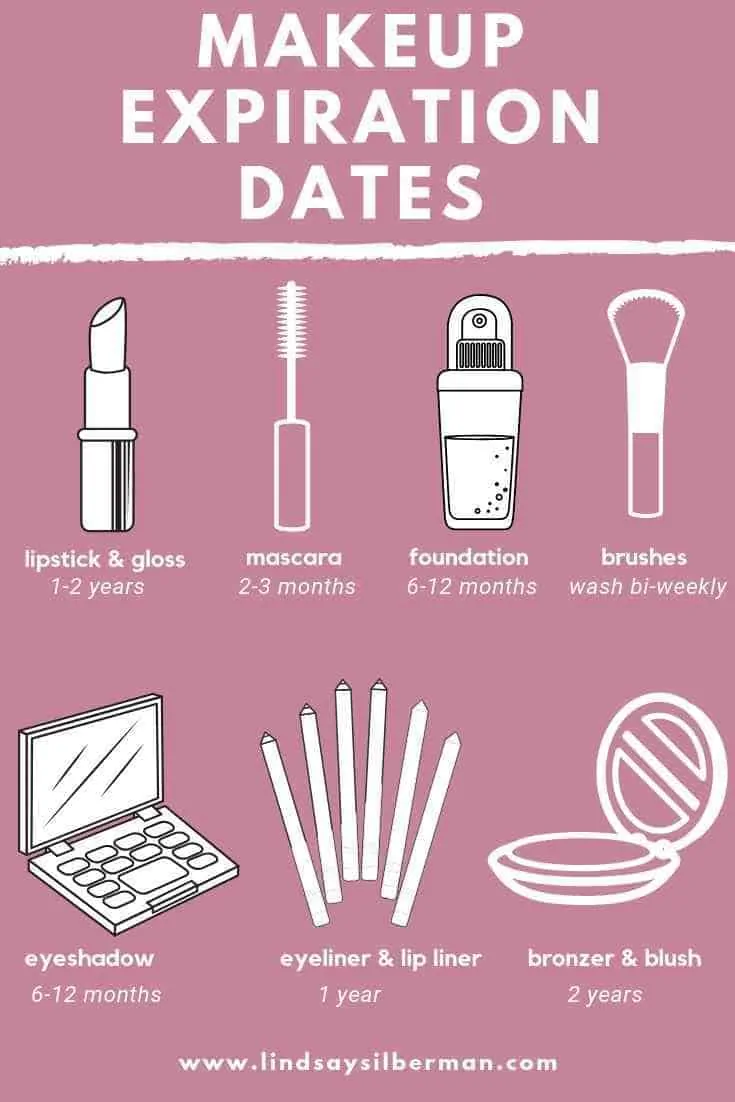
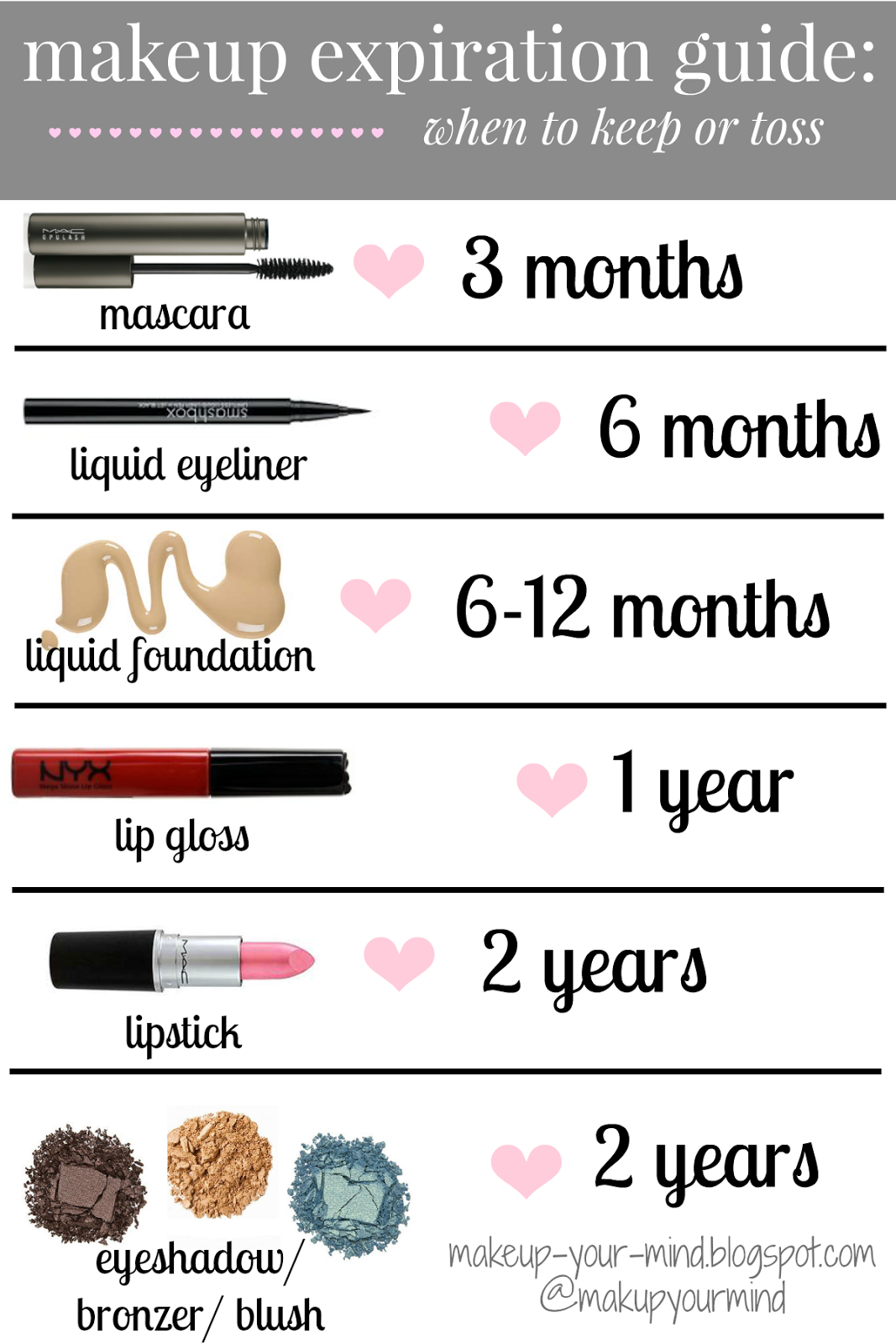
:max_bytes(150000):strip_icc()/makeup-expiration-dates-1-1-02e81c0678f34ca59f5e0f5bfee87232.jpg)

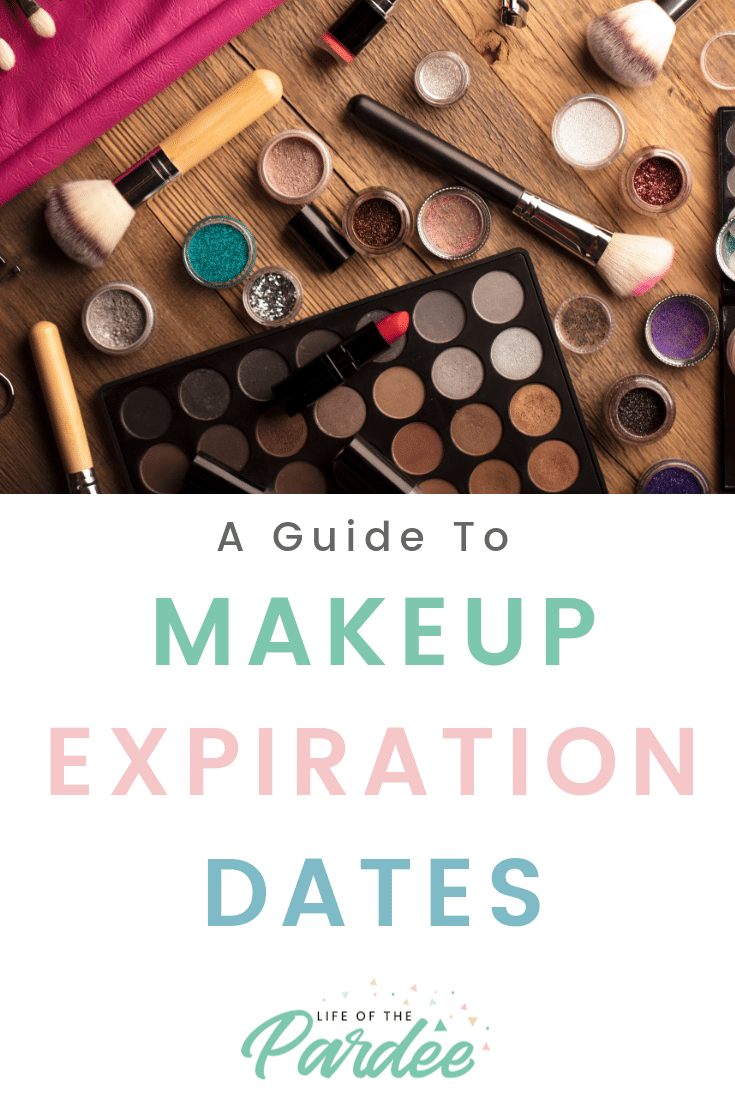
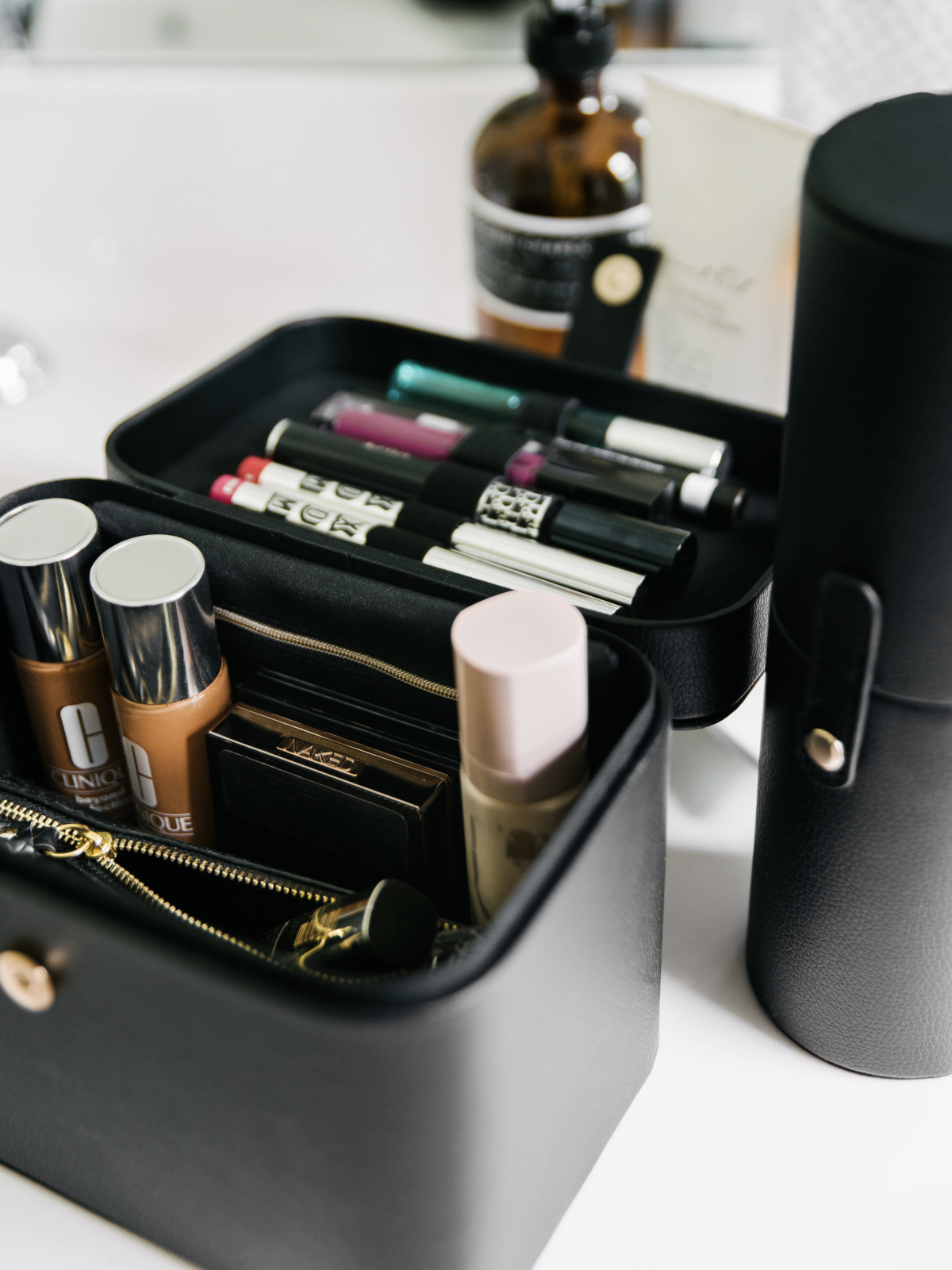
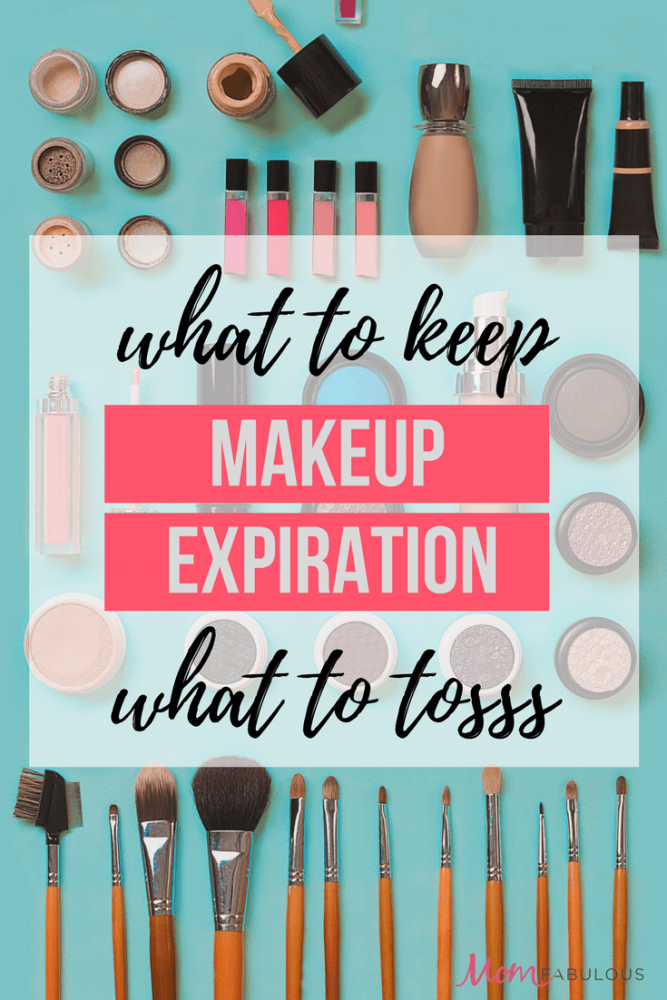

Closure
Thus, we hope this article has provided valuable insights into The Importance of Understanding Makeup Expiration Dates. We appreciate your attention to our article. See you in our next article!